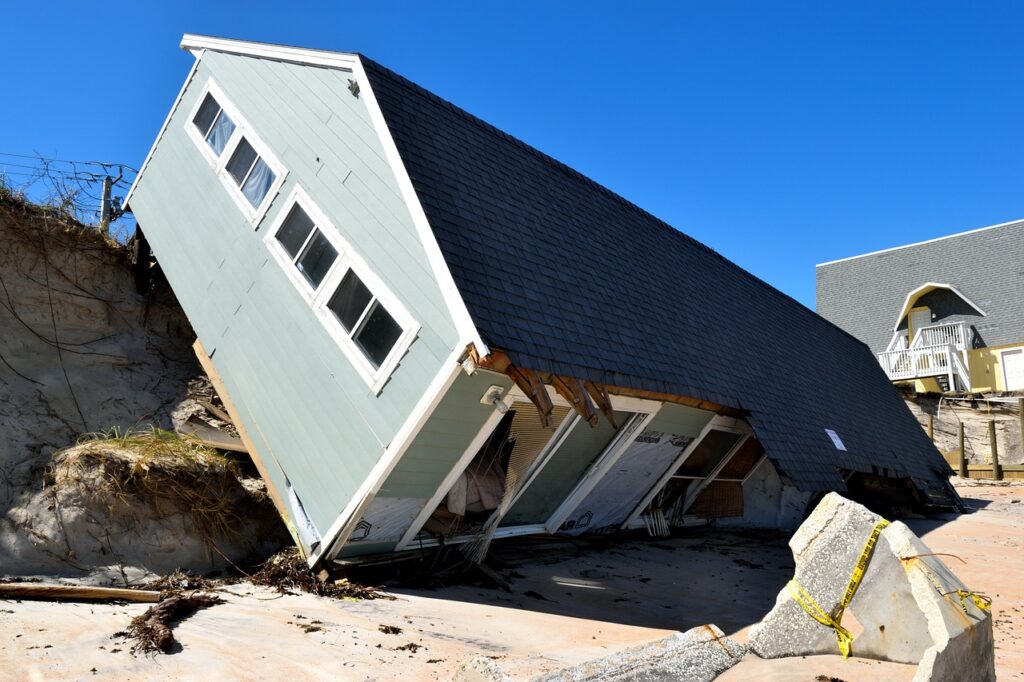Homeowners and Renters Insurance: Protecting Your Home and Property

Your home is more than just a place to live – it’s where you create memories, store your belongings and feel comfortable.
Whether you’re a homeowner or a renter, it’s important to protect your home and property. That’s where building and renters insurance comes in. These policies provide financial protection against unexpected events like theft, fire or natural disasters.
In this guide, we’ll explore the differences between homeowners and renters insurance, what they cover and how to choose the right insurance for your needs.
What is building insurance?
Homeowners insurance is a property insurance policy designed to protect homeowners from financial losses related to their home and its contents.
It typically covers the structure of the home, personal property, liability for damage or injury to third parties and additional living expenses if your home becomes uninhabitable due to a covered event.
What is renters insurance?
Renters insurance is similar to property insurance, but is tailored for tenants who rent out their home. While a landlord’s premises insurance covers the building itself, renters insurance protects the tenant’s personal belongings, provides liability coverage, and covers additional living expenses if the rental property becomes uninhabitable.
Key differences between building and renters insurance
While both policies offer similar coverage, there are some key differences:
Insurance coverage for your home:
Buildings insurance covers the physical structure of the home, including the walls, roof, and foundation.
The building itself is not covered by renters liability insurance, as this is the landlord’s responsibility.
Personal insurance:
Both policies cover personal belongings, but home insurance typically offers higher amounts of insurance due to the higher value of the items in a home.
Liability Insurance:
Both policies provide liability coverage, but building insurance may offer higher amounts of coverage because building owners are more likely to be held liable for damage that occurs on their property.
Cost:
Renters insurance is generally less expensive than building insurance because the building structure is not insured.
What does building insurance cover?
A typical homeowners insurance policy typically includes the following types of coverage:
Individual homeowners coverage:
Protects the structure of your home, including adjacent structures like garages or patios, from insured perils like fire, storms, and vandalism.
Other structure coverage:
Protects structures on your property that are not attached to your home, like sheds or fences.
Personal property insurance:
Protects your belongings like furniture, electronics, and clothing from theft, damage, or loss.
Liability Insurance:
Provides financial protection if you are held liable for injuries to others or damage to their property.
Additional Living Expenses (ALE):
Covers the cost of temporary housing and living expenses if your home becomes uninhabitable due to a covered event.
Third-Party Medical Expenses:
Pays minor medical expenses if someone is injured on your property, regardless of fault.
What does renters liability insurance cover?
Renters liability insurance includes the following coverages:
Personal Liability:
Protects your property from theft, fire, vandalism, and other insured perils.
Liability:
Covers legal fees and damages if you are held liable for bodily injury or property damage to others.
Additional Living Expenses (ALE):
Covers the cost of temporary housing and living expenses if your rental property becomes uninhabitable due to a covered event.
What is not covered?
While building and renters insurance offers broad coverage, there are some exclusions you should be aware of:
Floods and Earthquakes:
Damage caused by floods or earthquakes is generally not covered by standard insurance policies. Separate policies or permits are required for these risks.
Wear:
Damage caused by normal wear and tear or lack of maintenance is not covered.
Valuables:
Expensive items such as jewelry, art, or collectibles may have limited coverage under standard policies. Additional insurance coverage, called a rider or floater, may be required.
Business Equipment:
If you operate a business from home, your business equipment may not be fully insured. Separate business insurance may be required.
How much coverage do you need?
Determining the right amount of coverage depends on several factors:
For building insurance:
Home insurance: Make sure your insurance covers the cost of rebuilding your home, not just its market value.
Personal property insurance: Take an inventory of your property and estimate its total value to determine the appropriate coverage.
Liability insurance: When choosing liability limits, consider your assets and potential risks.
About Renters Insurance:
Property Insurance: Take a detailed inventory of your belongings and choose a coverage amount that reflects their value.
Liability Insurance: Choose a coverage amount that will protect your assets in the event of a lawsuit.
How to Save on Homeowners and Renters Insurance
Packaging Guidelines:
Many insurance companies offer discounts if you bundle your home or renters insurance with your auto insurance.
Increase your deductible:
A higher deductible can lower your premium, but make sure you can afford to pay the out-of-pocket costs if a claim occurs.
Install security features:
By installing smoke detectors, security systems, or storm shutters, you can reduce your risk and qualify for discounts.
Maintain good credit:
Insurance companies often use credit scores to set their premiums. A higher score can lead to lower rates.
Compare Rates:
Compare quotes from multiple insurance companies to find the best rates and coverage options.
Submit a Claim
If you experience a covered loss, follow these steps to file a claim:
Document the damage:
Take photos or video of the damage and make a list of items affected.
Contact your insurer:
Notify your insurance company as soon as possible to begin the claims process.
Provide the required information:
Submit any necessary documentation, such as police reports or estimates for repairs.
Work with an expert:
An expert will assess the damage and determine the amount of compensation.
Final Thoughts

Homeowners and renters insurance are an important tool to protect your home, your property, and your financial situation. Knowing the differences between these policies, what they cover, and how to choose the right coverage will help you make informed decisions that will give you peace of mind.
Whether you are an owner or renter, take the time to evaluate your needs, compare quotes, and choose a policy that offers the best protection for your individual situation. With the right insurance, you can be sure that you are prepared for life’s unexpected events.
